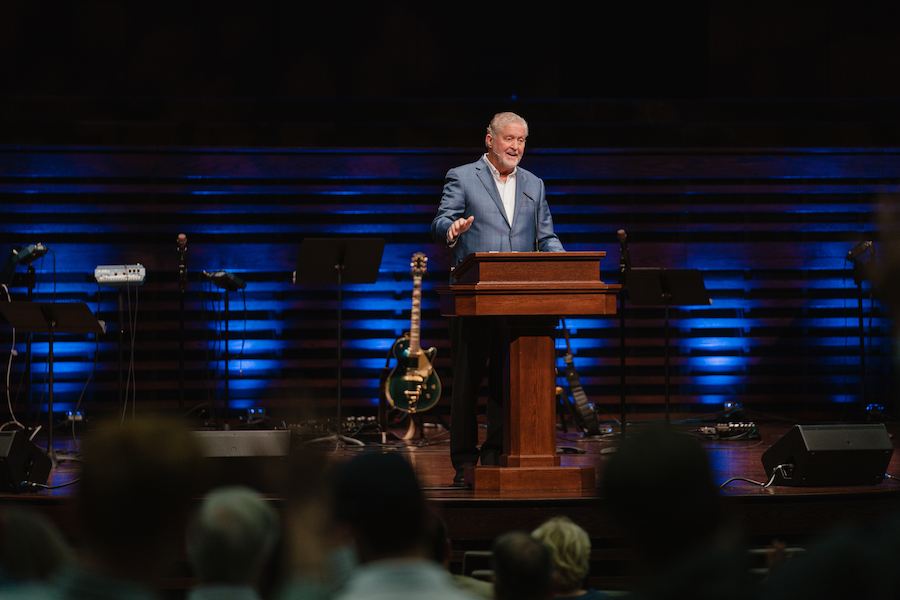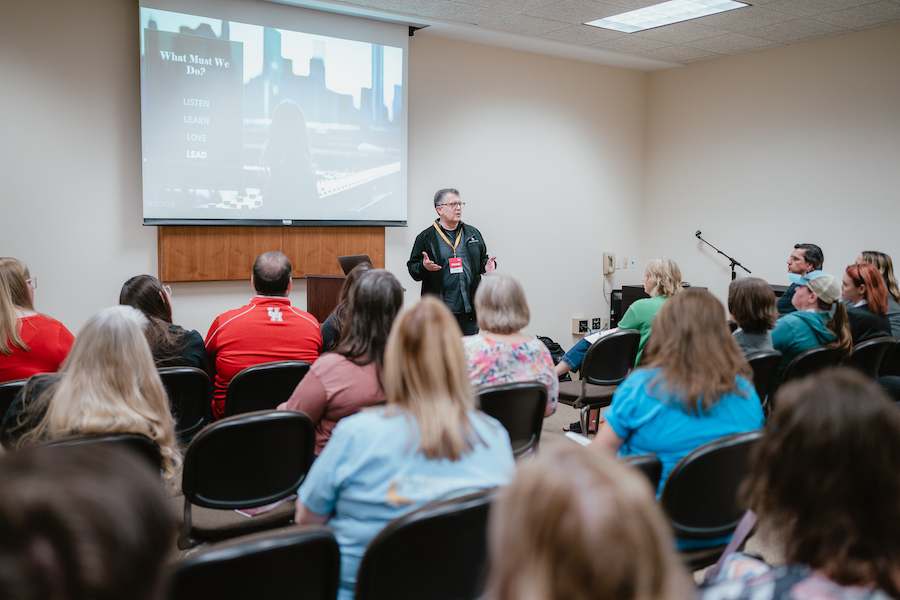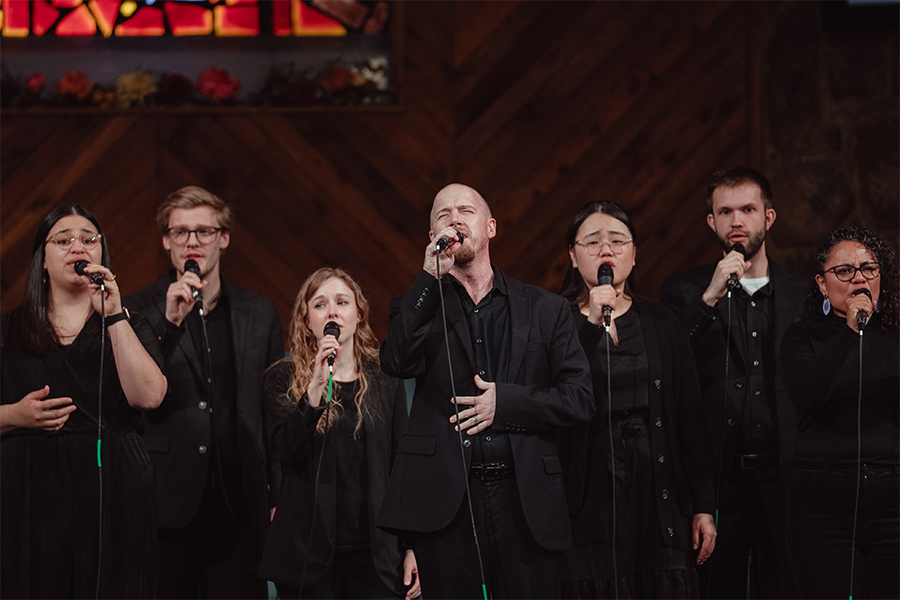Southwestern Seminary text-driven preaching workshop mines the treasures of Ephesians
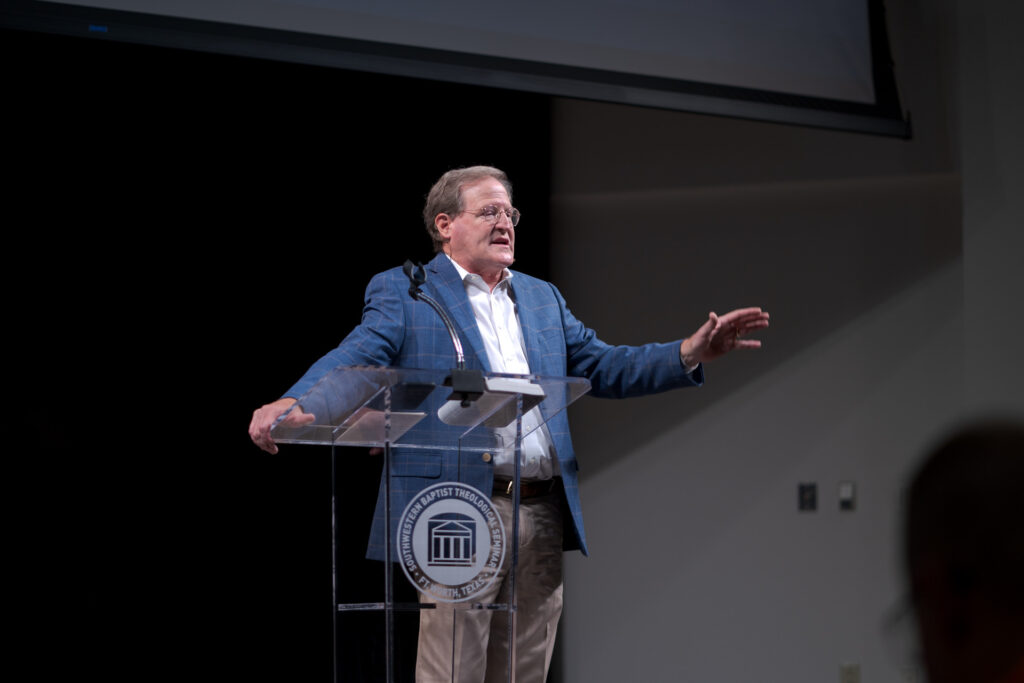

More than 50 pastors, staff members, students, and Bible study leaders gathered Oct. 3 for a preaching workshop at Southwestern Baptist Theological Seminary, gleaning insights from Paul’s letter to the Ephesians.
Matthew F. McKellar, professor of preaching in the School of Theology and chair of the seminary’s preaching department, moderated the day-long, five-session workshop, saying its goal was to minister to, encourage, and serve primarily pastors, but also “anybody who is handling the word of God. What our goal is, in one day, to handle the book from start to finish,” McKellar said.
McKellar, who began the workshop with an overview of Ephesians and an exposition of chapter 1, was followed by Chris S. Osborne, professor of preaching who previously pastored Central Baptist Church in Bryan, Texas; Daniel C. Dickard, pastor of Friendly Avenue Baptist Church in Greensboro, North Carolina, and president of the 2023 SBC Pastors’ Conference; Juan R. Sánchez, associate professor of theology and senior pastor of High Pointe Baptist Church in Austin, Texas; and Justin Wainscott, assistant professor of pastoral ministry and director of the Professional Doctoral Studies program.
David S. Dockery, interim president of Southwestern Seminary, briefly addressed the gathering, encouraging them to reflect on Psalm 90:17 and pray daily for Southwestern Seminary. Mark Dance, director of pastoral wellness at Guidestone Financial Resources, provided a brief encouragement from the text of Acts 20.

McKellar introduced the workshop by first stating that “text-driven” describes expository preaching of a text that is derived directly from the Scriptures in the substance, structure, and spirit of the sermon, contrasted by topical sermons. Even the title of the sermon often can come from the text of the sermon, he said.
“Often, the best sermon title is one that follows from the text itself. And so, I titled this message ‘To the Praise of His Glory,’” McKellar said, drawing from Ephesians 1:6a, 12b, and 14. “If you can’t summarize what you’re going to say in a single sentence, you’re probably not ready to preach the text of Scripture.”
McKellar also said text-driven preaching should let the text stand for itself, especially on difficult topics. “How should I preach the doctrine of election? The answer is, don’t do like a lot of people and skip over it. If it’s in the Bible, you ought to preach it,” he added. He countered also that there are “paradoxes” and “tensions” in the Bible on certain doctrines in Scripture.
Citing John 5:40 on willing and refusing to come to Christ, Joshua 24 on “choose this day whom you will serve,” and Acts 10:13 on “whosoever shall call upon the name of the Lord,” McKellar said, “Wherever you are on the continuum, here’s what I’m saying to you: preach the text.”
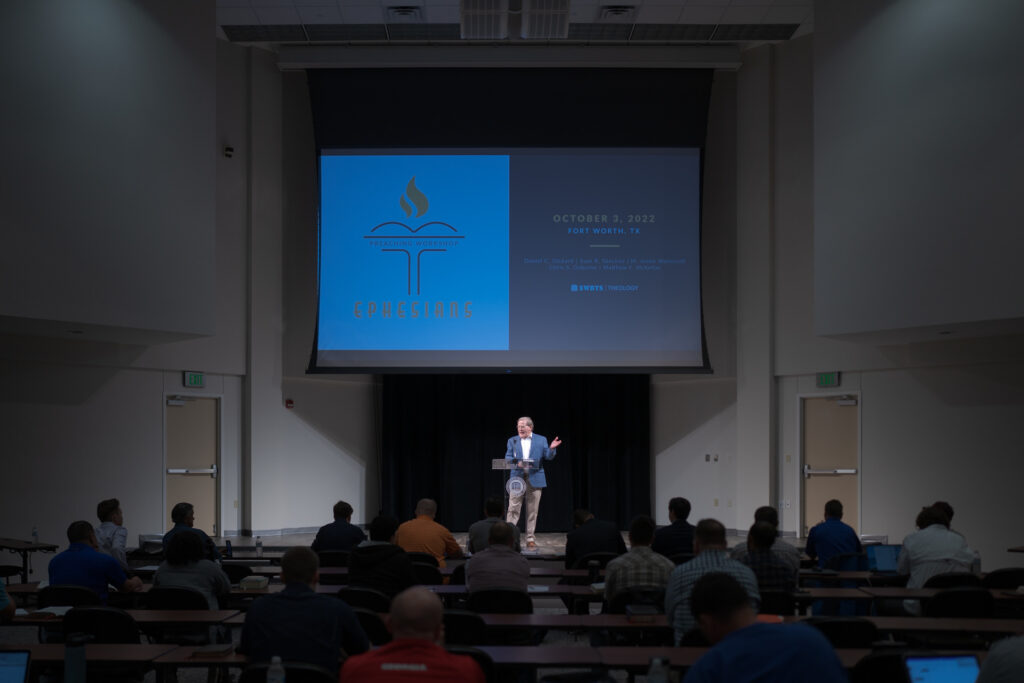
Each speaker addressed text-driven preaching for about an hour, including question and answer time. Dickard titled the passage of Ephesians 3:14-21 in his outline “A Passage on Spiritual Power in Prayer,” which was continued from verse 1. “Paul quickly digresses into the mystery in verses 2 through 13. He returns to the same conjunctive clause in 3:14, and this time carries the prayer to its conclusion,” Dickard mentioned. In the first prayer which began in 1:18, Paul wanted the Ephesians to “know,” Dickard said, “the second great prayer, in 3:14, is a prayer concerning being: ‘that you may be able.’”
“God has given us the greatest system in communicating with Him, and that’s prayer,” Dickard taught. “We teach that expository text-driven preaching is the substance of the text, the spirit of the text, and also the communication of the text.”
Dickard continued the earlier theme from chapter two on spiritual unity, stating that the first three chapters addressed “our wealth in Christ.” In 4:1, Paul transitioned to “our Christian walk,” noting that the word “walk” occurs five times in chapters 4 and 5, emphasizing unity, he said. “It implies agreement and requires consistency of interest, goals, and purposes,” Dickard added.
“There’s an important theological concept here. We don’t create unity. The Spirit of God creates unity. We are to maintain unity. We’re to strive towards unity,” Dickard said. “This is a good word for pastoral ministry. God has not called you to build the church. God is calling you to preach the Word. God has called you to pray for the people to shepherd His flock and He will build his church.”
Sánchez carried forward the unified walk theme in chapter 5, saying Paul was making a biblical argument. “This is the difference between preaching and teaching. In teaching, we’re giving information, describing things. In preaching, we’re making an argument. Paul’s bringing them to realize that they must make a decision. And so, we want to make a biblical argument,” Sánchez said.
Beginning with a warning in Ephesians 5:3-5, Sánchez said, “With a warning text like this, there’s going to be people in the room with real tender consciences, maybe overly tender, and then some with hardened consciences. And we have to speak to both,” adding that the message of grace must be balanced with the strong warning of God’s wrath.
Verses 7 through 14 discuss the Christian walk in the light in contrast to walking in darkness, Sánchez observed before concluding chapter five with “a wise walk,” with practical insight for Christians. “We begin with the argument that we are united with Christ, we no longer to walk in darkness or a foolishness, but we’re to walk as children of light in the wisdom of God,” he concluded.
In other sessions, Osborne noted that just as the early church had its differences, churches today can learn from the call to unity in chapter two; and Wainscott concluded the workshop with a charge to “do the hard work” of exegetical study.
McKellar said that recordings of the sessions should be available by January 2023 at preachingsource.com.
